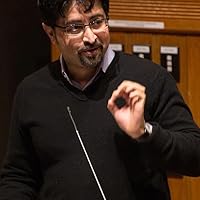

“Con-Text is the centuries-old city of Islam, a great and sprawling city consisting of various edifices erected for the various purposes of living by Muslims of bygone and present times, made in different forms and out of different materials, in various states of preservation, renovation and disrepair, of wide-ranging functions with different degrees of use and dis-use, with quarters and neighbourhoods inhabited by diverse peoples doing different things—all of which are nonetheless component elements in a part of what is ultimately, for all its citizens, the same shared environment and ecosystem of living and identification. The citizen is the one who lives in a city with which he identifies and affiliates himself—even if the specific constitution of his particular identification with the city may differ from that of another fellow-citizen, and even as what he thinks is good or bad about the city (what he thinks should be knocked down or restored, what should serve as a model for further construction, and what he thinks should be abandoned) might differ from that of a fellow-citizen. As the citizen moves about the city, its diverse component elements invoke and provoke in him different responses of orientation, narration and attachment; yet, he recognizes these edifices—even the ones he does not like—as edifices of this city. And even if some edifices are at some point destroyed, they remain in the memory (until such time as they are forgotten) as edifices of this city, as a part and parcel of its history and of the meanings that its name evokes.”
― What Is Islam?: The Importance of Being Islamic
― What Is Islam?: The Importance of Being Islamic

“Howard resented the ache in his heart. He resented that it was there every morning when he woke up... He resented equally the ache and resentment itself. He resented his resentment because it was a sign of his limitations of spirit and humility, no matter that he understood that such was each man's burden. He resented the ache because it was uninvited, seemed imposed, a sentence, and, despite the encouragement he gave himself each morning, it baffled him because it was there whether the day was good or bad, whether he witnessed major kindness or minor transgression, suffered sourceless grief or spontaneous joy.”
― Tinkers
― Tinkers

“The people who ask me about the “failure of multiculturalism” mean to suggest that not only has a political ideology failed but that human beings themselves have changed and are now fundamentally incapable of living peacefully together despite their many differences. In this argument it is the writer who is meant to be the naive child, but I maintain that people who believe in fundamental and irreversible changes in human nature are themselves ahistorical and naive. If novelists know anything it’s that individual citizens are internally plural: they have within them the full range of behavioral possibilities. They are like complex musical scores from which certain melodies can be teased out and others ignored or suppressed, depending, at least in part, on who is doing the conducting. At this moment, all over the world—and most recently in America—the conductors standing in front of this human orchestra have only the meanest and most banal melodies in mind. Here in Germany you will remember these martial songs; they are not a very distant memory. But there is no place on earth where they have not been played at one time or another. Those of us who remember, too, a finer music must try now to play it, and encourage others, if we can, to sing along.”
― Feel Free: Essays
― Feel Free: Essays

“And as the ax bites into the wood, be comforted in the fact that the ache in your heart and the confusion in your soul means that you are still alive, still human, and still open to the beauty of the world, even though you have done nothing to deserve it.”
― Tinkers
― Tinkers

“Exile is strangely compelling to think about but terrible to experience. It is the unhealable rift forced between a human being and a native place, between the self and its true home: its essential sadness can never be surmounted. And while it is true that literature and history contain heroic, romantic, glorious, even triumphant episodes in an exile’s life, these are no more than efforts meant to overcome the crippling sorrow of estrangement. The achievements of exile are permanently undermined by the loss of something left behind forever. —Edward W. Said, “Reflections on Exile”
― In the Light of What We Know
― In the Light of What We Know
Inayat’s 2024 Year in Books
Take a look at Inayat’s Year in Books, including some fun facts about their reading.
More friends…
Favorite Genres
Polls voted on by Inayat
Lists liked by Inayat


































